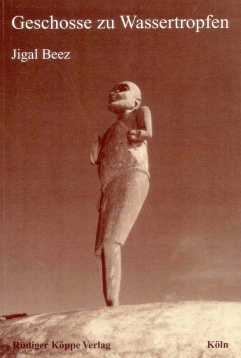


Whereas historians have published extensively on the events and socio-economic background of the Maji-Maji war, this conflict has so far eluded comparative interest by anthropologists. Yet the Maji-Maji war belongs to a number of very similar movements in Africa, Polynesia, Melanesia and South America at the turn of the 20th century against the oppression by the European colonial powers. In all these conflicts, the spiritual and magical beliefs held by the indigenous participants played a very important role.
Special emphasis is placed on eye witness reports that have hitherto not gained appropriate attention. At the start of hostilities the German colonial administration was surprised by the determined opposition offered by the population, who developed a spiritual and ideological programme transgressing ethnical boundaries to organize their efforts.
Following an introduction discussing the different theories on socio-religious movements, the historical and social developments in Tanzania preceding and the course of events during the war are elaborated. The author analyses the religious beliefs of the participating ethnic groups, and describes the influence of prophet Kinjikitile and the motivation and actions of the leadership of the Maji-Maji movement in detail.
The final part of the book weighs the gathered results against the different theories concerning socio-religious movements discussed previously and offers a closing appraisal of the long term effects of and the current view in Tanzania on the Maji-Maji war.
In his thesis The Outbreak and Development of the Maji Maji War 1905–1907 the Tanzanian historian Gilbert Kamana Gwassa analyses the Maji Maji War from an African perspective, see the link below:
Nach dem 100. Jahrestag des Beginns des Krieges der Herero im heutigen Namibia gegen die deutsche Kolonialherrschaft steht ein weiteres Jubiläum der deutschen Kolonialgeschichte unmittelbar bevor: der 100. Jahrestag des Beginns der Niederschlagung des sogenannten Maji-Maji-Aufstandes in Deutsch-Ostafrika, der eher, wie hier im Titel des vorzustellenden Buches geschehen, als Krieg zu bezeichnen ist. [...] Die Arbeit von Beez wird mit Sicherheit über den Jahrhundert-Anlass hinaus sowohl für die Kolonialgeschichtsschreibung, als auch für die Religionswissenschaft und für die afrikanische Historiographie von Bedeutung sein.
Ulrich van der Heyden in Zeitschrift für Missions- und Religionswissenschaft, 3/2005, 272–273
Overall, Jigal Beez delivers a well-argued analysis of the Maji Maji war in colonial Tanzania. The quotation-based ethnographic treatment of the subject helps the reader understand the beliefs of the people and why they rose up against German power and then kept fighting despite initial setbacks. This struggle consisted of a religiously based social movement that combined many different ethnic groups briefly into one movement for a common purpose – perhaps too similar to today’s terrorism?
Robert Munson in International Journal of African Historical Studies, 37/1, 2004, 141–143
Andreas Eckert in Periplus, 2004, 300–301
Thomas Morlang in Jahrbuch für Europäische Überseegeschichte, 6/2006, 288-291
© 2026 by Rüdiger Köppe Verlag – www.koeppe.de